Two new and radically different ARGs (Alternate Reality Games) have burst into the news in the last week, and illustrate the very best of an innovative phenomenon: the commercial tie-in ARG, and the public service ARG.
After video games grew beyond "fad phase" and entered the entire world's cultural consciousness, it was only a matter of time before creative minds began to cleverly integrate game design concepts into our un-designed physical world. This has led to the well-documented, popular, and original concept of the ARG. Combining elements of video games, scavenger hunts, and Web 2.0 collaboration, ARGs force players to move back and forth between their media sources (computer, TV, etc.) and external reality in order to find clues, solve mysteries, and earn fabulous prizes ($200,000 in the case of Perplex City, an early success and one of the few big ARGs not tied to a product release). I Love Bees and Why So Serious? created massive buzz for Halo 2 and The Dark Knight respectively, involving millions of players worldwide.
This week's commercial tie-in ARG comes from Valve Studios, a brand who went above and beyond in creating PotatoFoolsDay to promote yesterday's already highly anticipated Portal 2 launch. It is an incredibly intricate and nerdy piece of game design that began April 1 (hence the name) with the release of the Potato Sack game collection for sale on Steam (which Valve owns). It's an excellent product in its own right, containing 13 of the best indie games at a 75% discount. But Valve had more in mind than exposing a wide audience to indie games such as Defense Grid: Awakening and Super Meat Boy.
Hidden within the Potato Sack versions of these games were cyphers and glyphs that, when decoded by fans, led them to an impressively vast string of fake websites, YouTube videos, and emails. These were tangentially related to the game's fiction, and intimated that if players were able to solve the mystery, Portal 2 might be released early. This inspired players to herculean feats of cryptology, gameplaying (many of the clues were located in the Potato Sack games themselves), and puzzle-solving. Players were even given special Steam achievements for completing ARG tasks, called Potatoes, and a Gold Potato if they earned all 36 of them. The game designers used the clues and puzzles to lead these players across games, images, videos, and text to real-world locations in Seattle containing physical clues. Eventually they were led to a distributed computing challenge, requiring players to play the Potato Sack games frantically in an effort to fill this progress bar and and get Portal 2 released early.
They succeeded. The game was released on Steam three hours earlier than the planned North American release. That might not seem like a big reward, but remember those Gold Potatoes? The roughly 1800 people who earned those precious spuds were treated to free downloads of the Valve Complete Pack, containing every game Valve has ever made including, of course, Portal 2. Byzantine enough for you? Check out the PotatoFoolsDay ARG Wiki, which was the center of the worldwide effort to complete the game, and this flowchart of their ARG-solving process:

(See a larger version of the flowchart here.)
PotatoFoolsDay was designed first and foremost as a commerical tie-in to hype and sell a product/brand (Portal 2/Valve).
And now we come to the public service ARG. The New York Public Library might be a brand, but they're certainly not trying to sell anything. They're a library. And that's the point. The real world has an infinite number of real problems and a growing number of gamers, so why not harness games to make people care about fixing those problems? Declining library funding and pen-and-paper literacy are real problems, and the forthcoming Find The Future ARG just might help.
Find the Future is a "Serious ARG" (an initiative to use gaming as a means for positive social change) designed by Jane MacGonigal, arguably the biggest name in ARG design. She worked on I Love Bees and other 42 Entertainment ARGs, but has also used the ARG medium to promote social change. Yes, social change. She worked on World Without Oil in 2007, one of the first serious ARGs. It encouraged players to collectively use a website to describe a hypothetical world in the grips of a sudden oil shortage. She has spoken at TED, written a book about Serious Gaming, and is just the person you'd expect to create a really fresh and well-intentioned ARG like Find the Future.
The main part of Find the Future will take place all in one night at the NYPL, Stephen A. Schwartzman building on May 20, 2011. 500 participants will be chosen based on their answers to a simple question currently posted on the game's website. These players will be locked in the library from 8:00 pm to 6:00 am the following morning, during which they must scour the library's 40 miles of stacks to assemble clues and text from within great literary works. If they succeed in completing the game, they will have collectively produced their own book, which will remain in the library as part of the permanent collection. Details on how the night will play out exactly are sketchy, but if you're going to be in New York, are over 18, and want to do something weirdly fantastic and literary, go.
You'll be doing something really new and innovative for once.
Just updated your iPhone? You'll find new emoji, enhanced security, podcast transcripts, Apple Cash virtual numbers, and other useful features. There are even new additions hidden within Safari. Find out what's new and changed on your iPhone with the iOS 17.4 update.



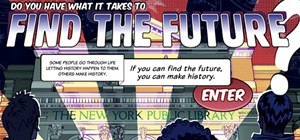







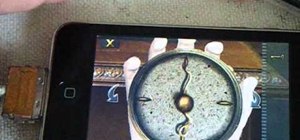
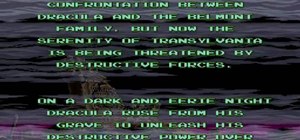






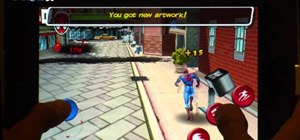





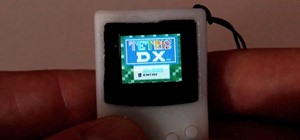
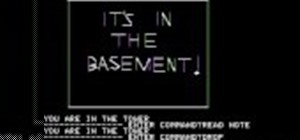









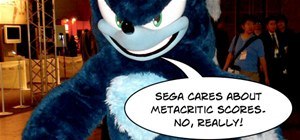

Be the First to Comment
Share Your Thoughts